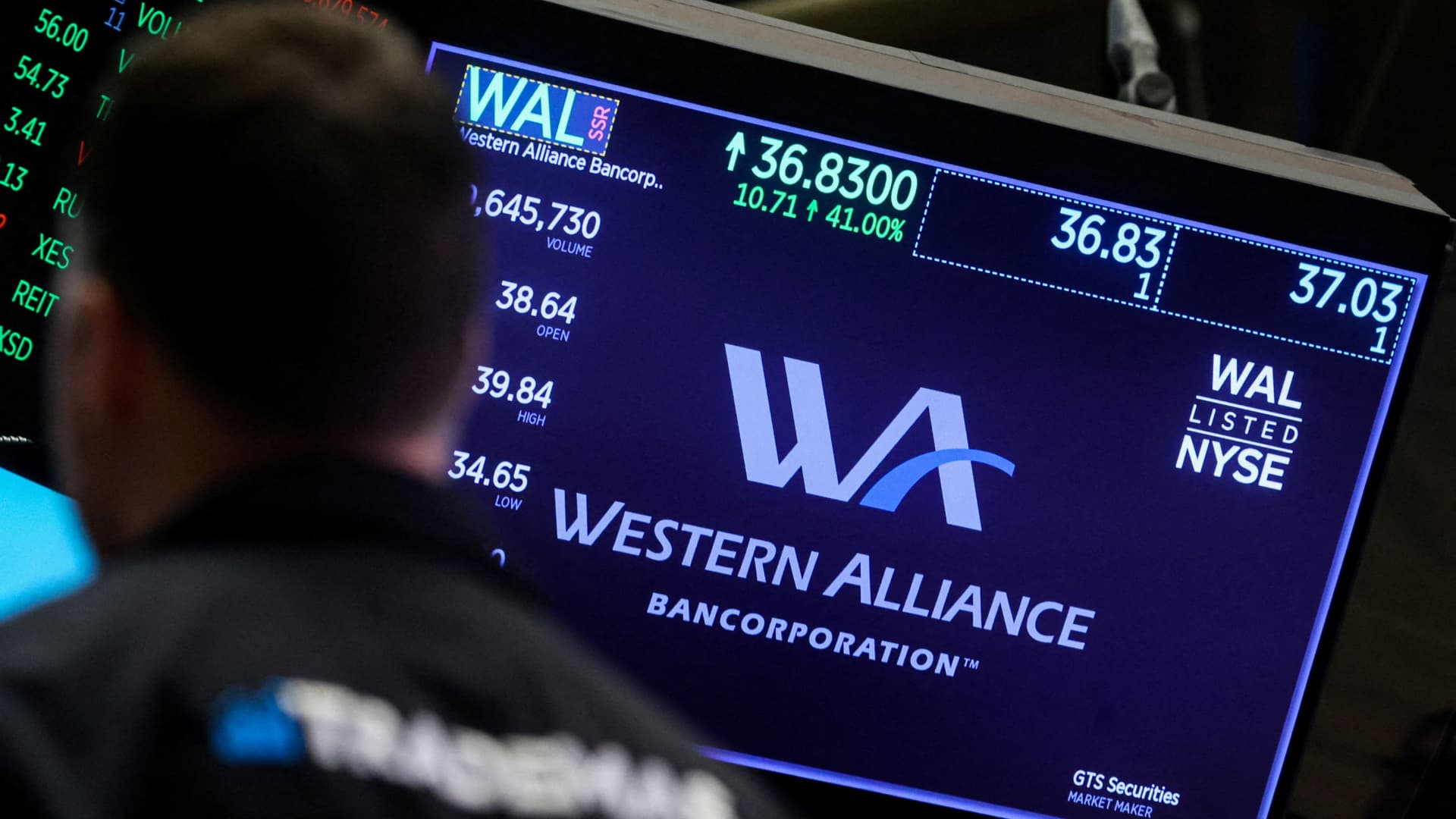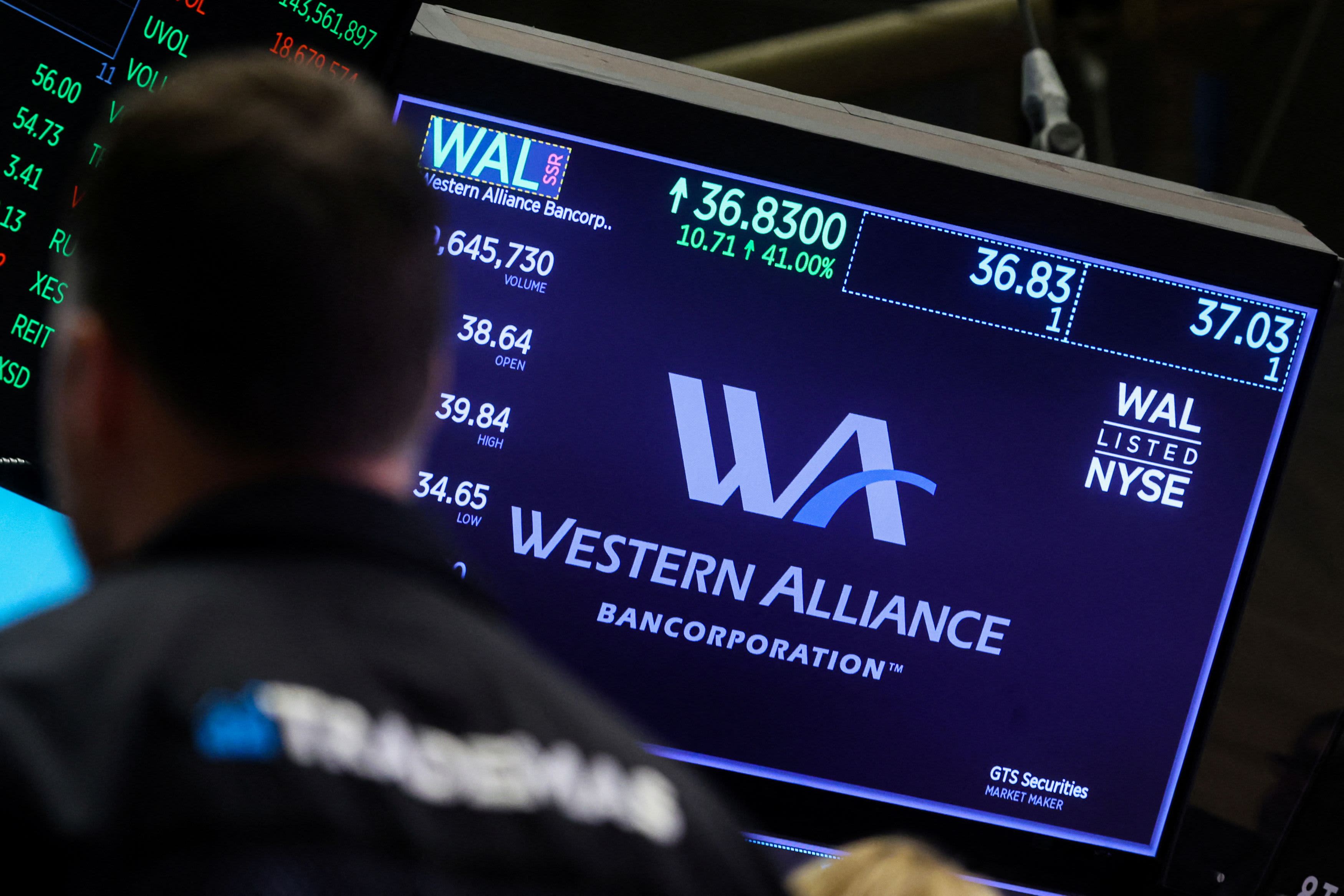Shares of Western Alliance Bancorp cut steep losses Thursday after the regional bank gave a new update showing deposit outflows stabilizing amid the banking crisis.
The Phoenix-based lender said in a filing that its net outflows have fallen sharply and returned to normalized levels by March 17. Deposit balances grew about $900 million to quarter end since March 30, the bank added.
related investing news
The stock last traded down 10% after losing as much as 20% earlier Wednesday. Investors were initially disappointed the lack of detail in an earlier update released Tuesday evening.

Western Alliance had suffered an exodus of deposits in the aftermath of the collapses of Silicon Valley Bank and Signature Bank last month. Shares of regional banks slumped as investors grew worried that they might face similar balance sheet issues, a possible mismatch between long-dated assets and short-dated liabilities.
Western Alliance said it experienced a total of $6 billion net deposit outflows in the first quarter. The bank said the outflows were concentrated in its tech and innovation as well as settlement services groups.
Investors now took solace in the update, which noted that the bank has seen deposits grow by $1.2 billion this month. The bank also said its total insured deposits now stood at 68% of total deposits, significantly higher than year-end, which represented 50% of total deposits.
“This increase in the proportion of insured deposits following the elevated outflows in mid-March was driven almost entirely by strong utilization and growth in reciprocal deposits and collateralized deposits for clients,” Western Alliance said in a statement.
The bank stock is down more than 50% this year, off 66% from its record high.




